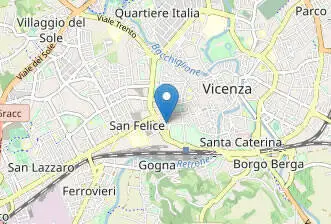
tel. +39 0444 327887
Partita IVA 03581700246
R.I. Vicenza n. 03581700246 – REA n. VI 336723
Capitale sociale € 15.000,00 interamente versato

Ex-participants and Erasmus+ mobility: what are the effects?
Ex-participants and Erasmus+ mobility: what are the effects one or two years after the end of the experience? We at FORTES asked beneficiaries who left at the turn of the COVID era to understand if the mobility experience abroad helped them to have clearer ideas about the future.
Out of more than 500 answers from students who left for European countries or arrived in Italy, in Vicenza, the majority (357 beneficiaries) declared that the experience brought them greater cultural openness, and interest in getting to know people and places from other countries, as well as greater autonomy and self-management skills and an increase in the spirit of adaptation and flexibility: aspects that are increasingly in demand in the world of work, but not only. According to the Almalaurea website (a consortium with the aim of carrying out statistical studies concerning the Italian university world), the fundamental soft skills in any working context are:
Autonomy
Self-confidence
Flexibility/Adaptability
Resistance to stress
Ability to plan and organise
Precision/Attention to detail
Continuous learning
Achieving objectives
Managing information
Being enterprising/Spirit of initiative
Communication skills
Problem Solving
Teamwork
Leadership
These so-called "soft-Skills", applicable to every profession, find their fundamental starting point in the Erasmus+ experience, which develops and deepens them thanks to the internship experience abroad.
Most of the beneficiaries who decided to go on with their studies chose university, saying that it was precisely the completed Erasmus+ experience that influenced them. The main reasons that influenced this choice were: a) the linguistic knowledge reinforced during Erasmus, b) the curiosity to know and learn c) the cultural openness, the interest in learning about Europe and the world d) the professional input received during Erasmus e) the ideas and hypotheses of occupational possibilities born during Erasmus.
Most beneficiaries carried out their experience in Ireland (36%) and Spain (20%).These remain the most chosen countries by institutions to enable students to learn studied languages (English and Spanish). While among the countries where English is used as a vehicular language, destinations such as the Czech Republic and Portugal are proposed.

